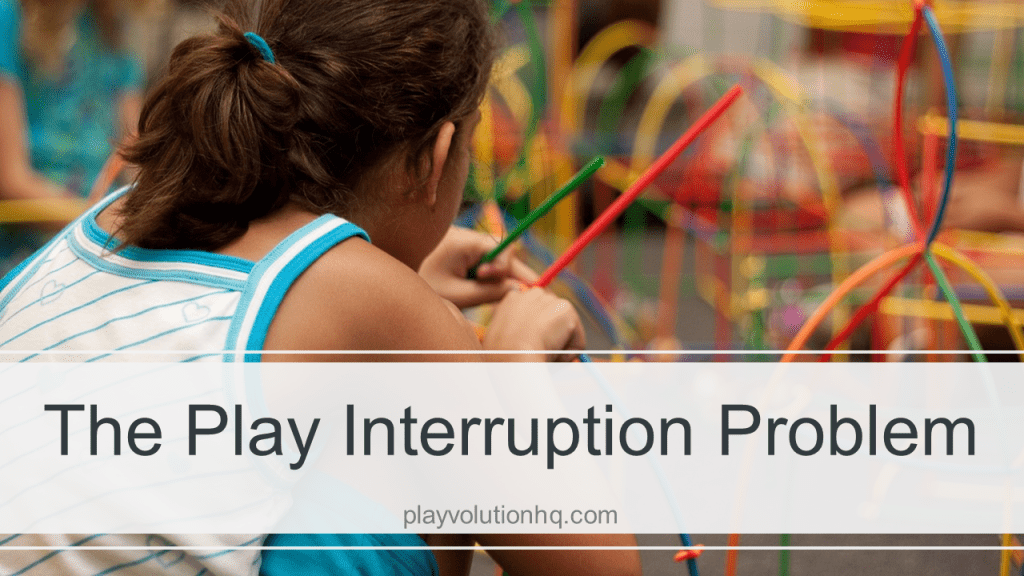
Table of Contents
Many early learning settings have a play interruption problem and may not even know it. Well-intentioned adults step in to ‘offer support’, ‘extend learning’, remind them to ‘play nice’, ask questions, prepare children for upcoming transitions, remind kids to share, suggest it’s time to tidy up, remind kids to use their inside voice, preempt social discord, remind kids to take turns, address ‘behavior problems, and more.
You can not overstate the importance of providing young children with big blocks of uninterrupted time for self-directed play in engaging environments, yet play is interrupted all the time.
These never-ending play interruptions have an effect. They distract and interfere. They pull kids out of play and back into the real world. The interruptions turn real play into play-like activity.

Peter Gray’s 5 Conditions Of Play provides the most precise and concise working definition of play currently in circulation. The incessant play interruptions listed above violate all 5 conditions of play in one way or another.
It’s crucial to recognize that needless interruption during a child’s self-directed play can be counterproductive to their development. Constant intervention disrupts the flow of their creative process, hinders problem-solving opportunities, and stifles the natural development of decision-making skills. It also interferes with the development of social-emotional control and skills.
Guiding children at every turn unnecessarily makes them accustomed to relying on external direction rather than cultivating their intrinsic motivation. This overbearing approach can inadvertently communicate a lack of trust in their abilities, hindering the formation of a robust sense of confidence and competence.
Quotes Related To Play Interruption
Warranted Interruptions
There are, of course, times when play interruption is necessary. I’d argue the valid reasons for interruption break down into these two categories:
- Legitimate Health And Safety Concerns—If time-sensitive health and safety concerns arise during play, thoughtful intervention is necessary to prevent harm. (More on Danger, Hazard, and Risk)
- Interpersonal Squabbles Kids Can’t Manage Themselves—Immediate intervention in instances of conflict that children can not manage on their own is sometimes necessary. That said, interceding too soon may hinder their own attempts at resolution.
Instead Of Play Interruption
It can be challenging to allow children to explore, make mistakes, and ultimately learn valuable life lessons on their own terms. There’s a desire to be part of things, to engage, to teach, that’s hard to overcome. Not interrupting takes practice.
When we see Aurora struggling to figure out why the paint on her brush is an ugly brownish-gray instead of orange, we want to hurry in and demonstrate how to rinse the brush in clean water before dipping it into a new color.

If Luca is frustrated because he’s trying to build a block tower upon an uneven surface and it keeps toppling over, we want to explain that it would be easier to build on the rug or the tile instead of where they intersect.
The thing is, the struggle and frustration are part of the process of figuring things out for one’s self. Besides, Aurora may not mind the ugly brownish-gray paint, and Luca may be trying to solve the problem posed by the uneven surface.
Practice self-restraint in such situations. Ask yourself if your intended interruption is essential. Is interrupting better than doing nothing? Better than nothing is a high standard to meet.
Occupying You Time
Letting kids play and explore without interruption doesn’t leave you with nothing to do. Your focus simply shifts from managing the children to managing the environment. Creating an early learning environment supportive of child-directed play and exploration takes planning and effort.
This focus shift leaves you occupied with tasks like observing children’s activities, documenting learning, assuring that there’s enough green paint, pulling more ramps out of storage because Kylie and Cameron are really into ramp play this afternoon, casually plopping a pool thermometer in the water play area because you heard Jeremiah talking about temperatures at snack time and dozens of other supportive activities.
To sum up, your focus becomes supporting the flow of play and exploration, answering questions, ensuring everyone’s basic needs are met, and interrupting only when necessary.
Play Interruption Wrap-Up
Picture the last time you were intensely focused on something you found extremely interesting. How would you respond if someone walked up and asked you a question? This probably doesn’t require much imagination since it’s likely happened many times. You’re pulled back to reality, lose focus, and have difficulty settling back into what you had been doing. Maybe you feel flustered, maybe angry. Are such interruptions enjoyable? Productive? Helpful?
Contribute content to Playvolution HQ
Brought to you by Explorations Early Learning
Browse Trainings

Post Author
Jeff Johnson is an early learning trainer, podcaster, and author who founded Explorations Early Learning, Playvolution HQ, and Play Haven.

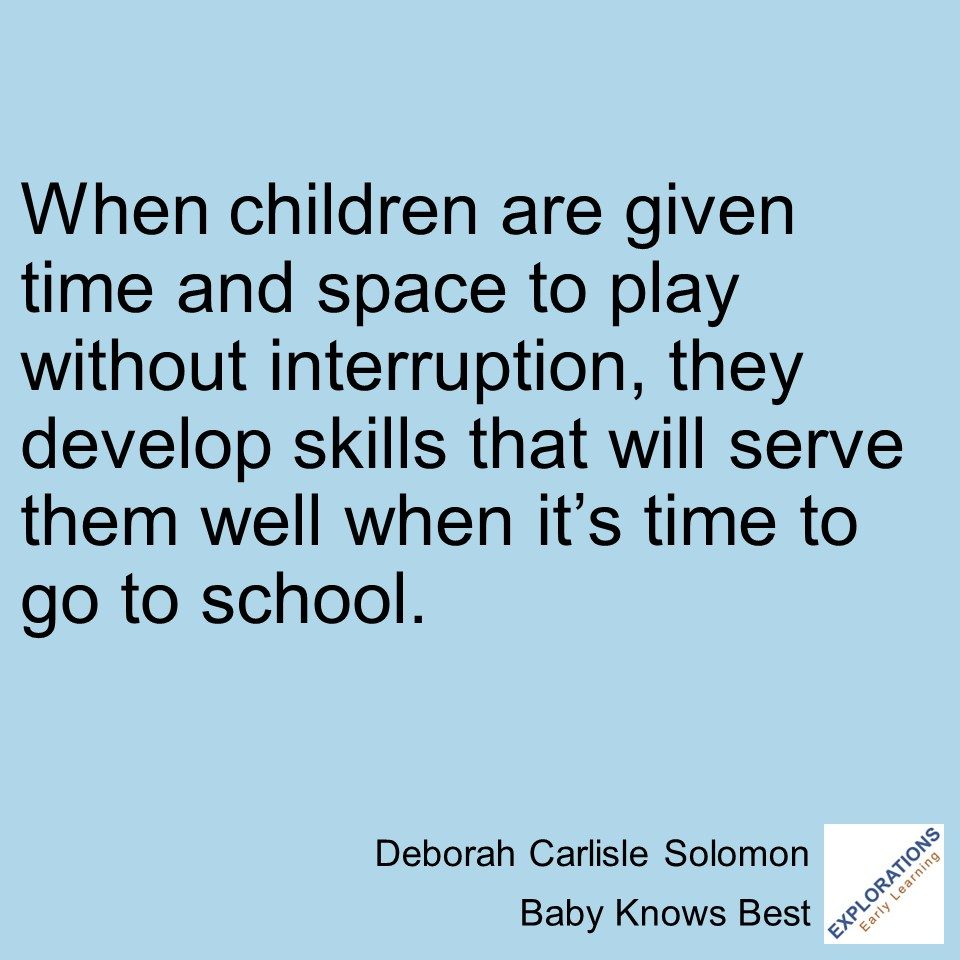
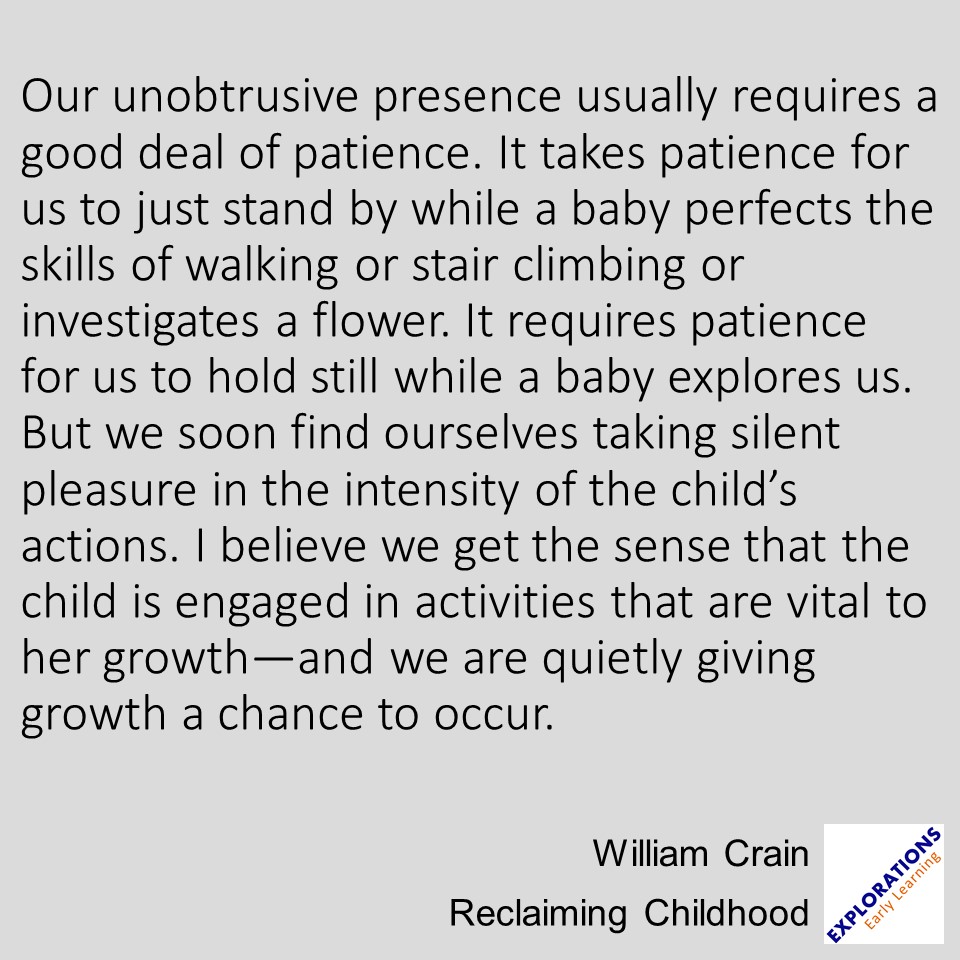
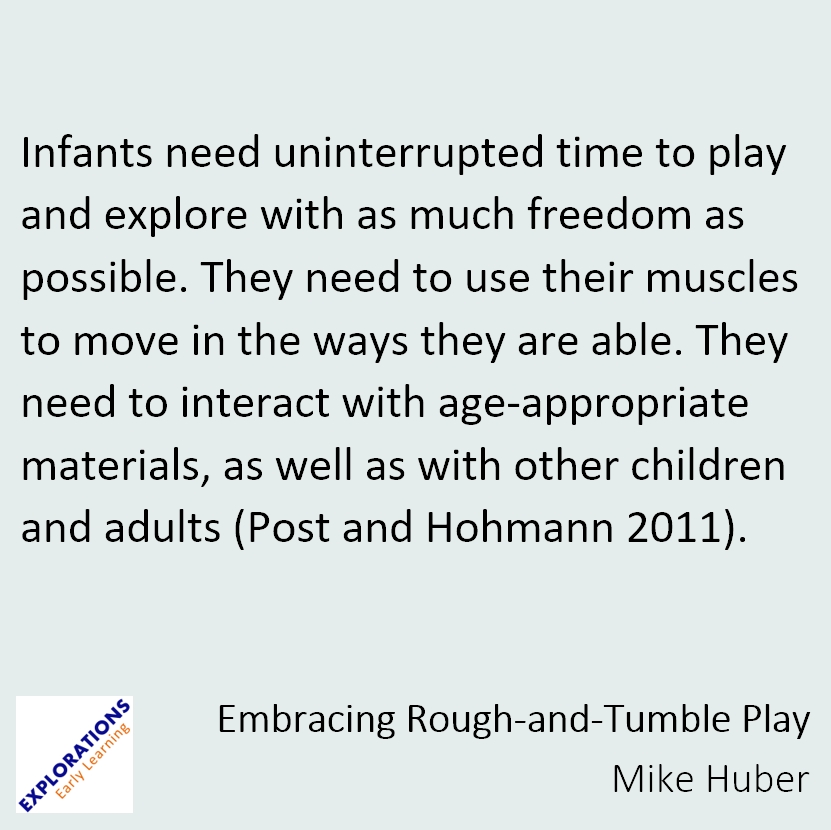
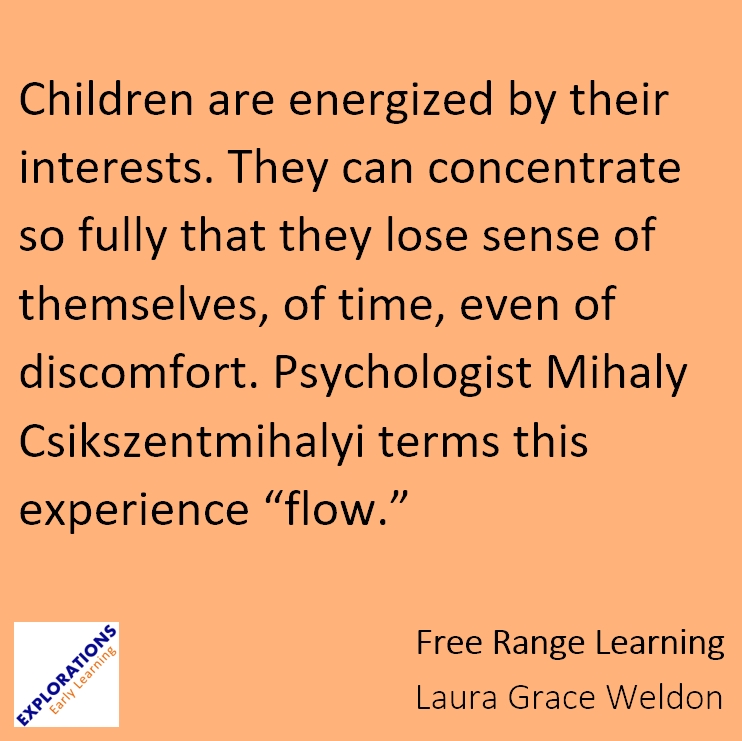
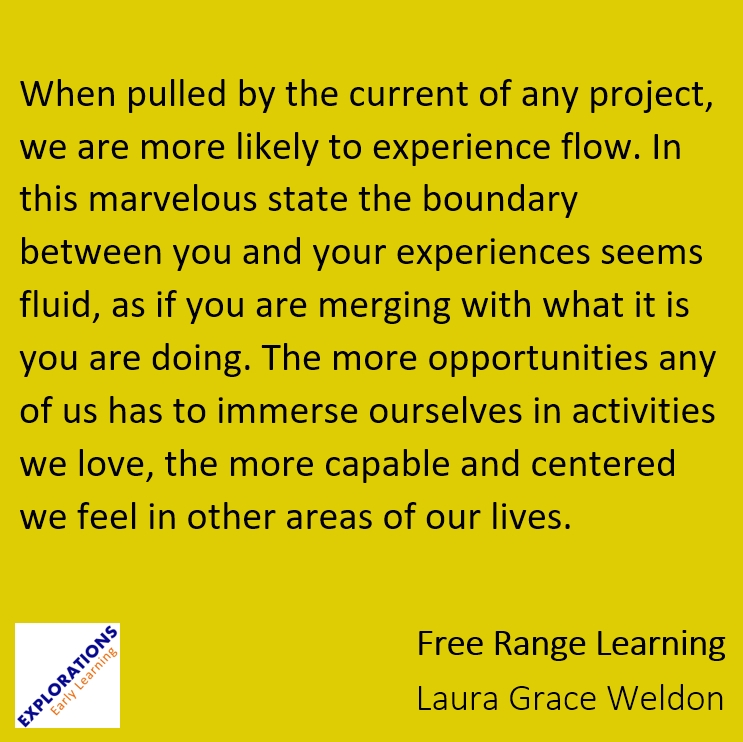
Leave a Reply